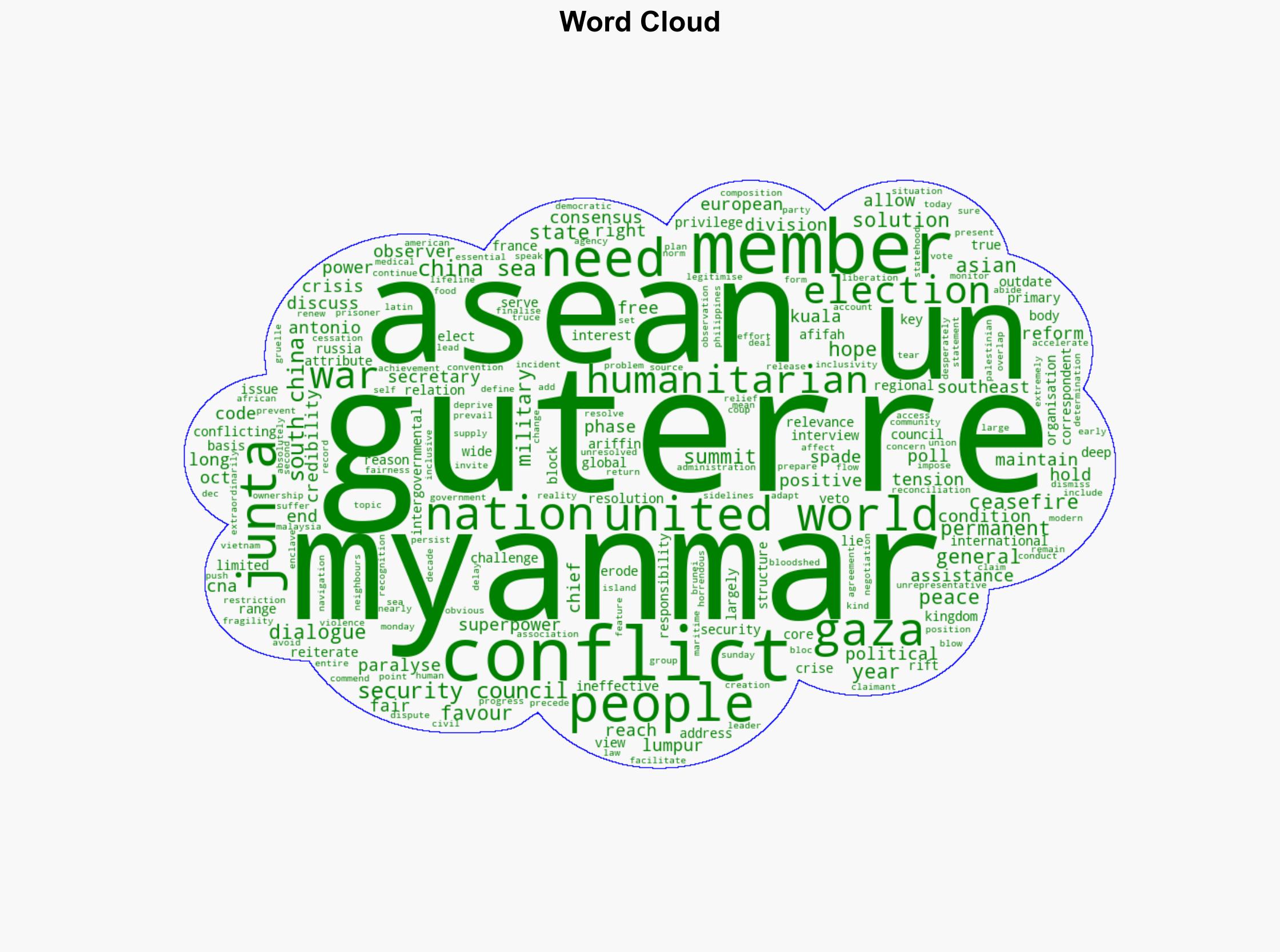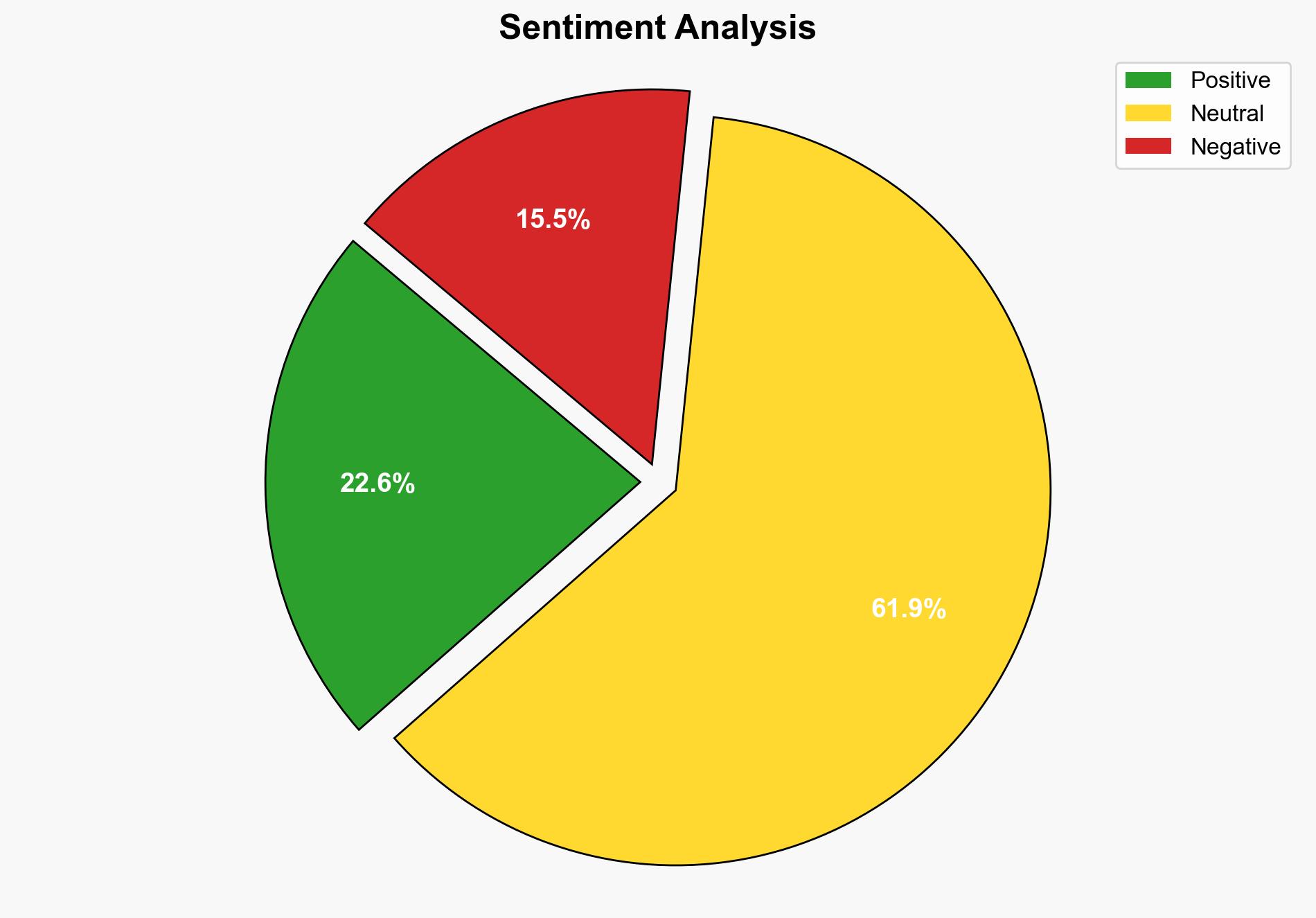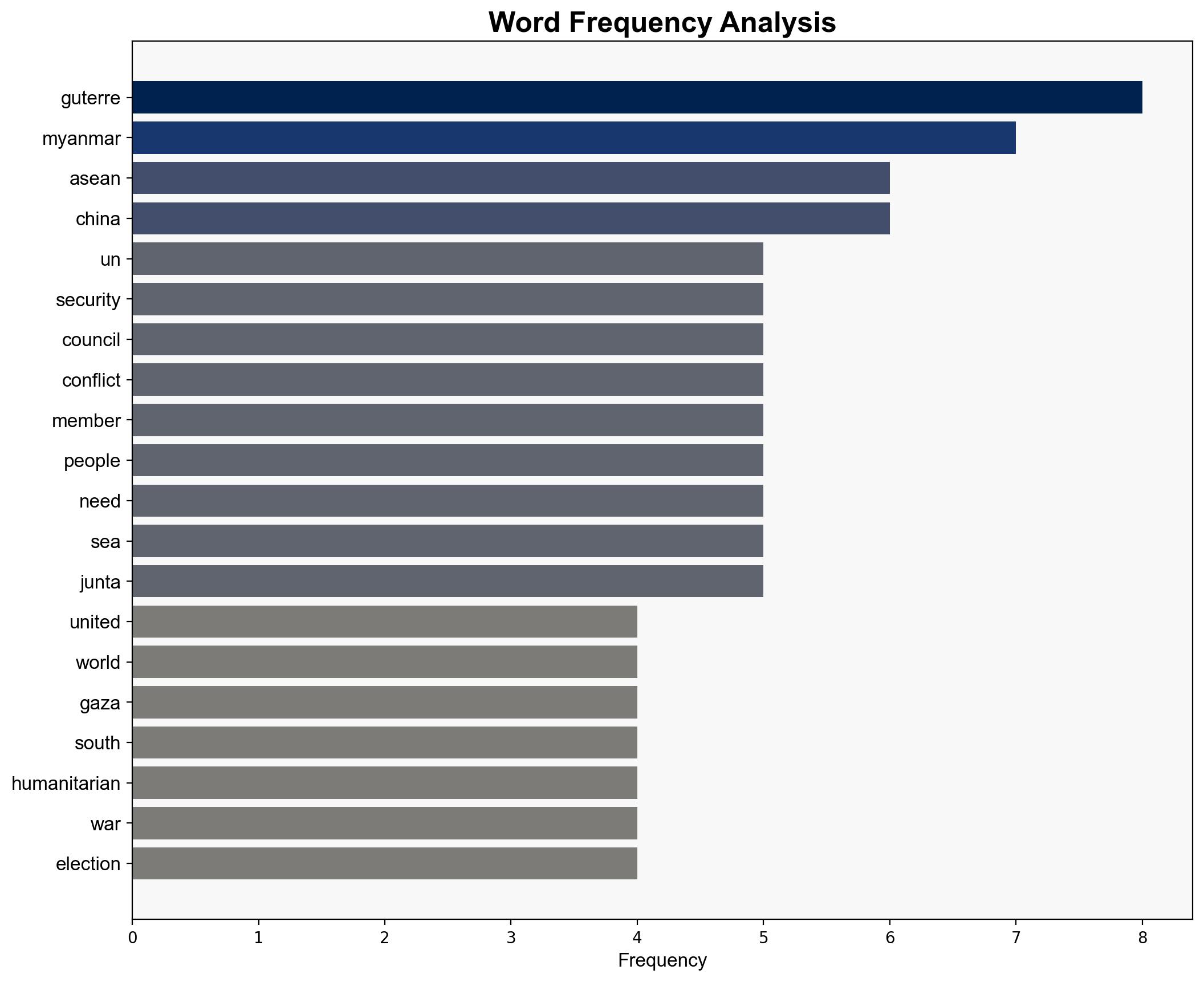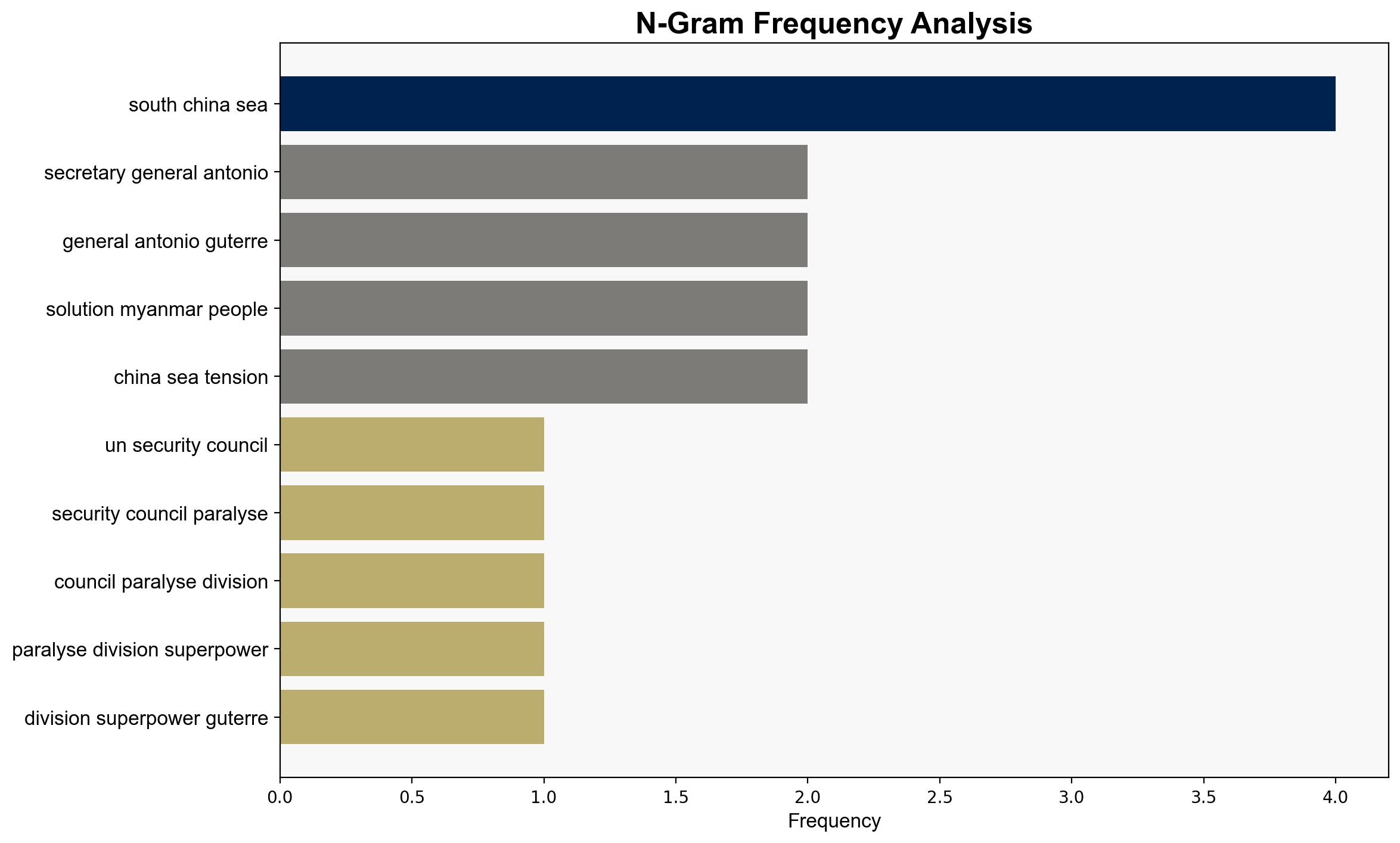UN Security Council ‘paralysed’ by divisions among superpowers says Guterres at ASEAN Summit – CNA
Published on: 2025-10-28
Intelligence Report: UN Security Council ‘paralysed’ by divisions among superpowers says Guterres at ASEAN Summit – CNA
1. BLUF (Bottom Line Up Front)
The United Nations Security Council (UNSC) is currently ineffective due to deep divisions among its permanent members, which undermines its ability to address global crises. The most supported hypothesis is that the structural and geopolitical rifts within the UNSC are the primary causes of its paralysis. Confidence level: Moderate. Recommended action: Advocate for UNSC reform to enhance its representativeness and effectiveness.
2. Competing Hypotheses
1. **Hypothesis A**: The paralysis of the UNSC is primarily due to the structural issues and outdated composition of its permanent membership, which does not reflect current global power dynamics.
2. **Hypothesis B**: The paralysis is mainly driven by geopolitical rivalries and conflicting national interests among the permanent members, which prevent consensus on key issues.
Using ACH 2.0, Hypothesis A is better supported as the structural issues are consistently highlighted by multiple stakeholders, including Antonio Guterres, and align with calls for reform. Hypothesis B, while plausible, lacks the same level of direct evidence in the source material.
3. Key Assumptions and Red Flags
– **Assumptions**: It is assumed that reforming the UNSC structure will lead to improved functionality and that current geopolitical tensions are insurmountable within the existing framework.
– **Red Flags**: Potential bias in attributing UNSC ineffectiveness solely to structural issues without considering deeper geopolitical factors. Lack of specific examples of how structural changes would resolve current impasses.
4. Implications and Strategic Risks
The ongoing paralysis of the UNSC poses significant risks, including the inability to effectively manage international conflicts, which could lead to regional instability and humanitarian crises. Economic impacts may arise from prolonged conflicts, while geopolitical tensions could escalate into broader confrontations. Cybersecurity threats may also increase as states leverage cyber capabilities in lieu of diplomatic solutions.
5. Recommendations and Outlook
- Advocate for UNSC reform to include more diverse representation from Asian, African, and Latin American countries.
- Engage in diplomatic efforts to bridge geopolitical divides among permanent members.
- Scenario Projections:
- Best: Successful UNSC reform leads to more effective conflict resolution.
- Worst: Continued paralysis results in unchecked conflicts and global instability.
- Most Likely: Incremental progress towards reform with ongoing geopolitical tensions.
6. Key Individuals and Entities
– Antonio Guterres
– China, France, Russia, United Kingdom, United States (as UNSC permanent members)
– ASEAN
7. Thematic Tags
national security threats, geopolitical tensions, international diplomacy, UNSC reform





